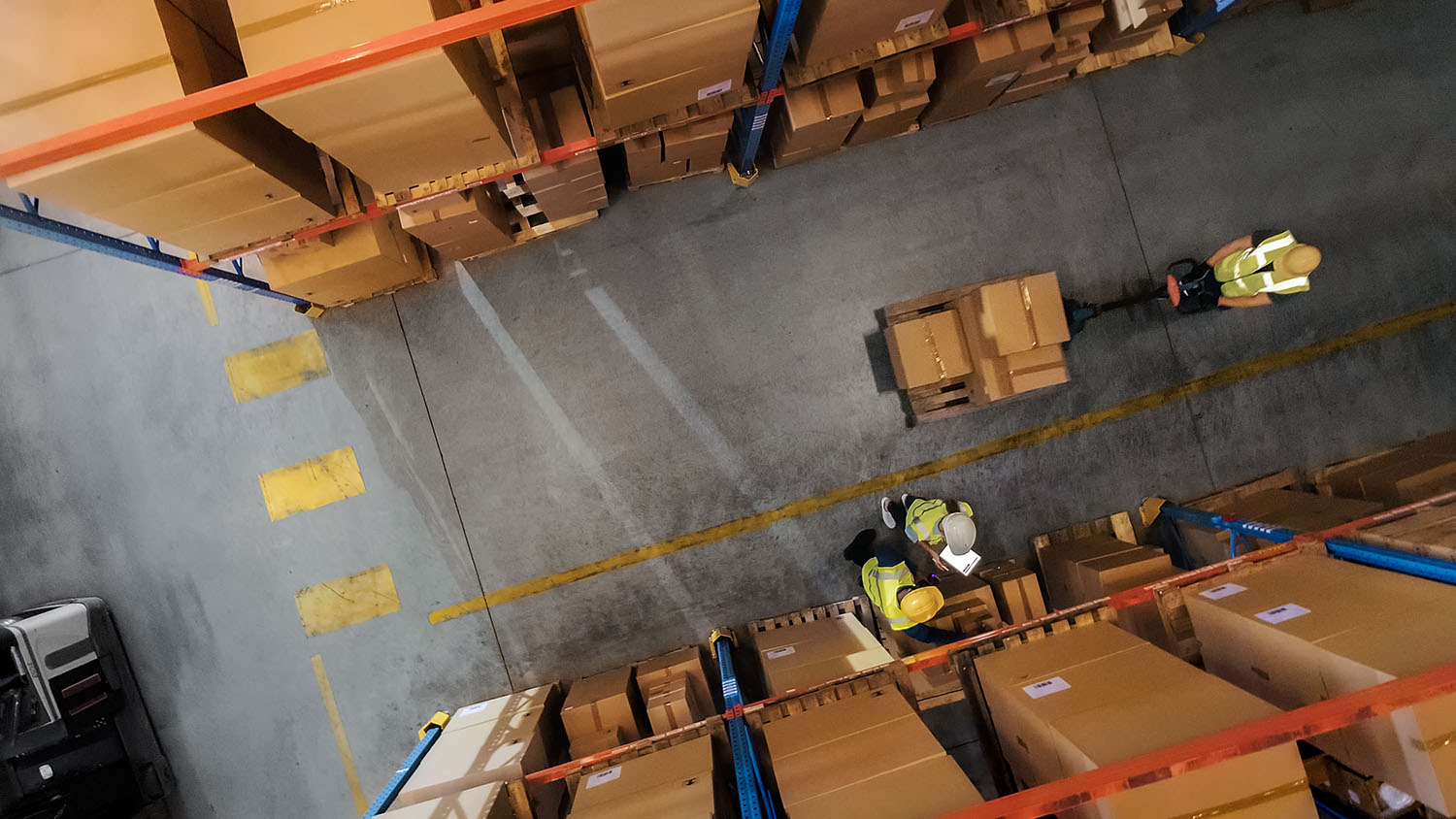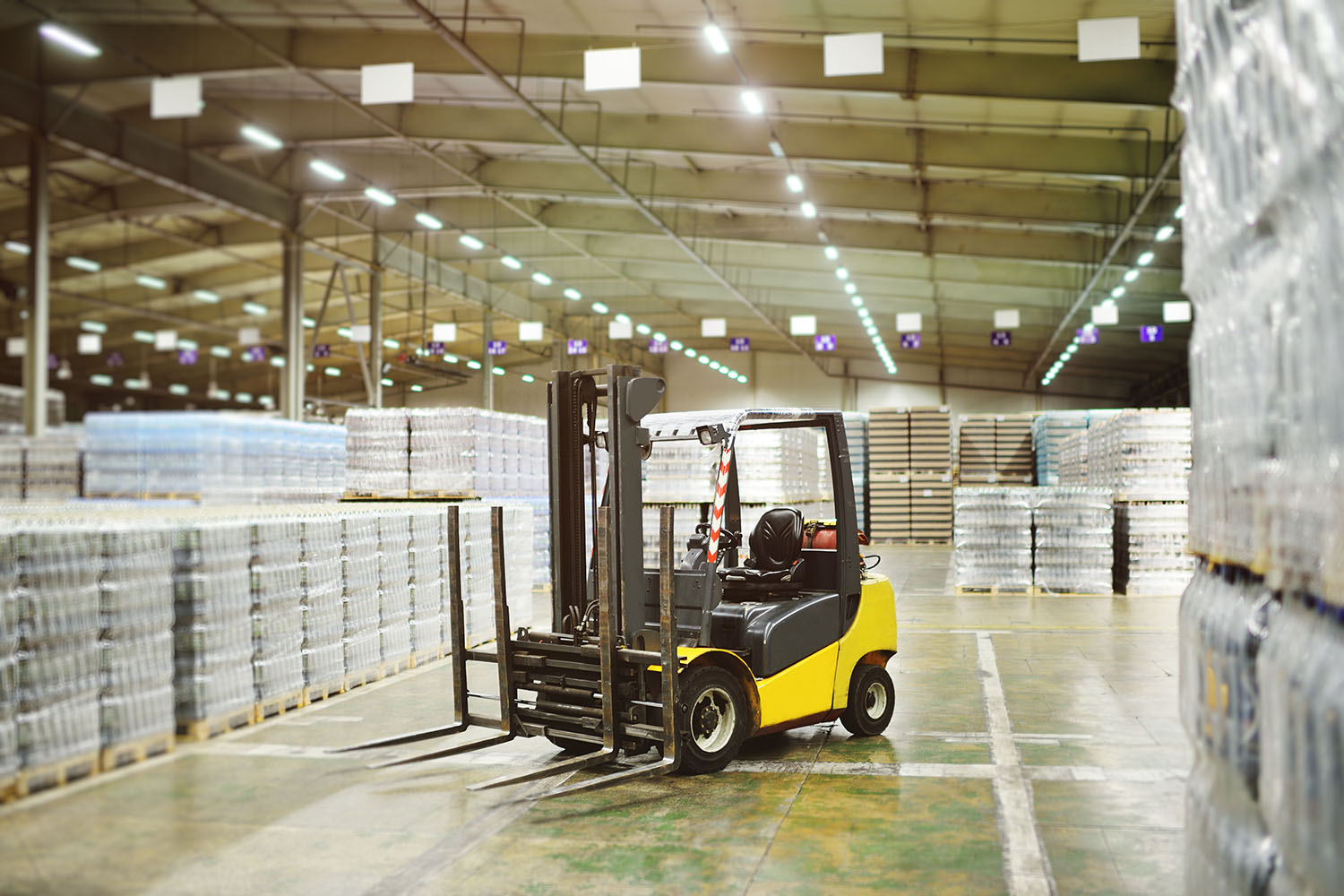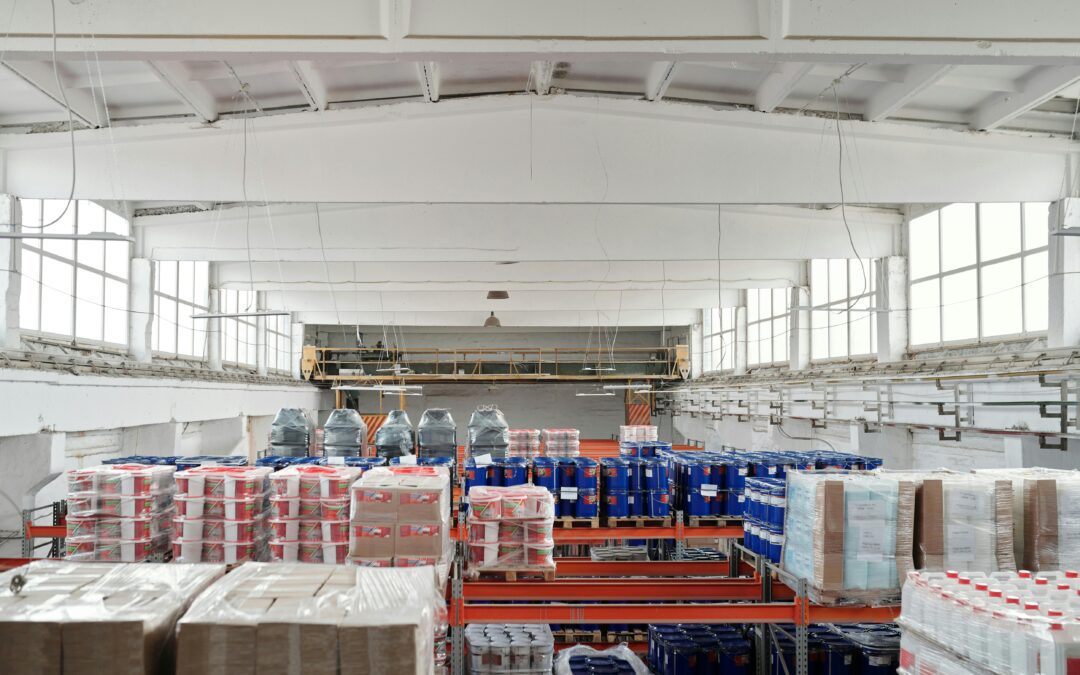Wondering which option is right for you between fulfillment centers vs. warehouses?
As businesses grow, it often becomes necessary for them to outsource order fulfillment and storage to a third-party logistics, or 3PL, service.
The terms “warehouse” and “fulfillment center” are used interchangeably throughout the logistics industry, especially when the topic is e-commerce operations.
However, there are differences built into the terms that a business shopping for a 3PL to handle their logistics should understand. Basically, used correctly, the term “warehouse” means a focus on longer-term storage and bulk distribution, while “fulfillment center” means prioritizing rapid order processing and direct-to-consumer shipping.
Still, clarity isn’t easy to come by for two reasons. First, modern facilities often blend these functions – many warehouses now have fulfillment operations, and many fulfillment centers maintain longer-term storage areas. Second, many 3PLs market themselves as fulfillment centers even when providing primarily warehousing services, while some large warehouses handling rapid D2C fulfillment still refer to themselves as warehouses.
Yet as long as you understand whether a 3PL’s underlying operational focus is more warehouse-like or fulfillment center-like, or bridges both, you can see through the terminological fog to get the services you need.
What Is a Fulfillment Center?
A fulfillment center is a physical space operated by 3PL providers where inventory and packages are received from the manufacturer and delivered to consumers on time. It generally doesn’t store inventory for long periods. Amazon Fulfillment is an excellent example of a fulfillment center. While it has the storage capacity to have millions of goods at once, it also provides shipping services and even online order placements, so there’s a lot of movement of goods directly to consumers.
What Is a Warehouse?
A warehouse is generally well-equipped to store goods in bulk and for extended periods and to accommodate every storage need for different product categories, from cold chains to bulky inventory.
The main focus of warehouses is usually to store products until redistribution to retailers, distribution centers, or wholesalers. For example, a wholesaler or e-commerce business owner might find a warehouse helpful as a way station for large inventory destined for their fulfillment centers or stores.
Warehouses are ideal for receiving and inspecting goods from manufacturers for quality and inventory management.
Fulfillment Centers vs. Warehouses – What’s the Difference?
With the caveat that many warehouses now perform fulfillment operations and many fulfillment centers include longer-term storage, fulfillment centers generally focus more on processing and shipping individual orders to end consumers, while warehouses focus on storing goods in bulk.
Here are more differences between fulfillment centers vs warehouses based on the needs of different logistics professionals:
Shipping
Fulfillment centers are more focused on shipping products to end customers. Warehouses work more like distribution centers, and they ship products to wholesalers, retailers, or distribution centers.
Key functions
Fulfillment centers focus more on order fulfillment activities like picking, packaging, shipment, and customer service. Warehouses focus more on bulk storage and have equipment to store all kinds of products, including pharmaceutical products and perishable foods.
Inventory management
Inventory management for fulfillment centers typically involves tracking orders until they reach their final destination. Warehouses are more inclined to use inventory management to monitor stock levels and decide when to replenish stock.
Storage
Warehouses store a large amount of goods for the long term, often including inventory surpluses or products sold seasonally. Fulfillment centers store short-term inventory and a consistent flow of products moving in and out of fulfillment centers.
Technology
Both warehouses and fulfillment centers rely heavily on WMS systems like ours at Da Vinci, though they may prioritize different features. Warehouses often focus on storage optimization and inventory tracking capabilities, while fulfillment centers leverage the same WMS for rapid picking, packing, and shipping orchestration.
Warehouses also use various automation technologies, such as RFID and barcode scanners, palletizing robots, and automated storage and retrieval systems. These tools help workers gain visibility into inventory levels and demand forecasting and make decisions based on data insights. Fulfillment centers typically require more technology focused on tracking orders or packaging orders for shipment, like order management systems, inventory management systems, dynamic slotting, and customer-facing tools.
| Terms | Fulfillment centers are more likely to: | Warehouses are more likely to: |
| Shipping | Coordinate shipping to end consumers | Provide distribution to wholesalers, distributors, and e-commerce businesses |
| Typical customers | Retailers, some wholesalers | E-commerce businesses, wholesalers. |
| Key functions | Order processing (picking, packaging), inventory management for order fulfillment, customer services, shipping to end customers | Bulk storage of goods, inventory management, an inspection of goods, basic order fulfillment |
| Inventory management | Track order fulfillment in real-time t | Track stock levels for storage |
| Technology | Use order management systems (OMS), Inventory management systems (IMS), etc | Use Barcode scanners, RFID, AS/RS, etc. |
Fulfillment Centers vs. Warehouses: Which Is Right For Your Business?
E-commerce business owners or supply chain professionals might consider a fulfillment solution when they need:
Faster order fulfillment
Most business owners pack and fulfill orders themselves in the early stages. However, as the business grows, faster and more seamless order fulfillment processes become necessary. This is what a fulfillment center provides.
Quality changes
E-commerce business owners might consider using 3PL fulfillment centers when they think about upscaling the quality of their packaging to something more professional.
Less storage pressure
Fulfillment centers eliminate the need for your company to have storage space. They store and ship your products out to end consumers as the orders come in.
Lower staffing costs
Outsourcing your order fulfillment needs to a third-party logistics provider or fulfillment center means you do not have to employ warehouse staff. You can significantly reduce your labor costs and remove the need to hire, train, and manage staff.
Focus on core business activities
With your logistics and fulfillment concerns fully in the hands of professionals, you can focus more on core business activities and divert resources to product development, marketing, and improving customer experience.
Supply chain professionals might consider a warehousing solution when they need:
Secure storage
Warehouses provide safe and secure storage for goods for an extended period. They help businesses maintain adequate stock levels to meet customer demands. Without warehouses, businesses would need on-site storage spaces, which would increase costs and reduce quality and efficiency.
Inventory management
Inventory management is an essential part of every business. In a warehouse, you can track inventory levels and ensure that stock is available when it is needed. A warehouse management system (WMS) like Da Vinci helps e-commerce business owners and supply chain professionals manage their inventory by providing real-time data and visibility into stock levels and even predicting what products need to be restocked.
Strategic location:
Proximity to a supply route is important in supply chain management. Businesses can reduce shipping costs when they have a warehouse close to key market areas or transport hubs. Warehouse location can make or break a business’s growth.
Optimize Storage & Fulfillment With Da Vinci WMS
Fulfillment centers are best suited for retailers and some wholesalers who need a variety of products for their business.
Warehouses, on the other hand, are best suited for wholesalers who need bulk orders and e-commerce business owners who need to have a variety of products available for orders.
You must evaluate your business needs before choosing between fulfillment centers vs. warehouses. However, regardless of which option you choose, you need a proper warehouse management system like Da Vinci that can supply data insights into inventory levels and help you devise strategic plans to ensure goods are available and of top quality.
Request a demo today to enjoy the plethora of tools available.



